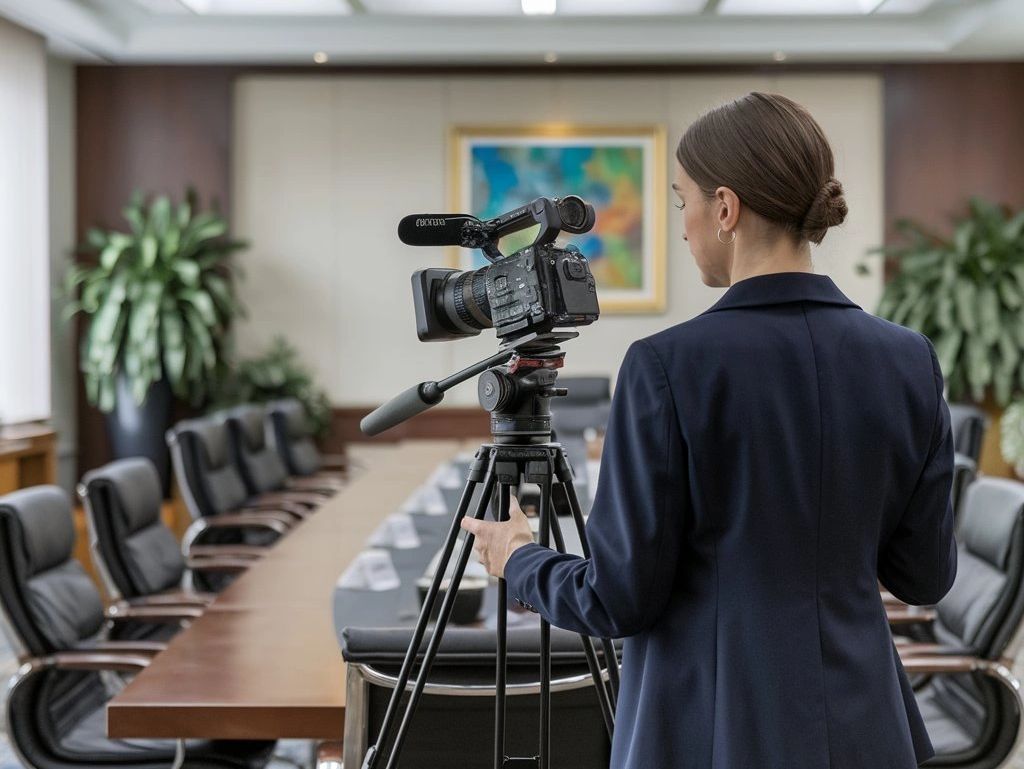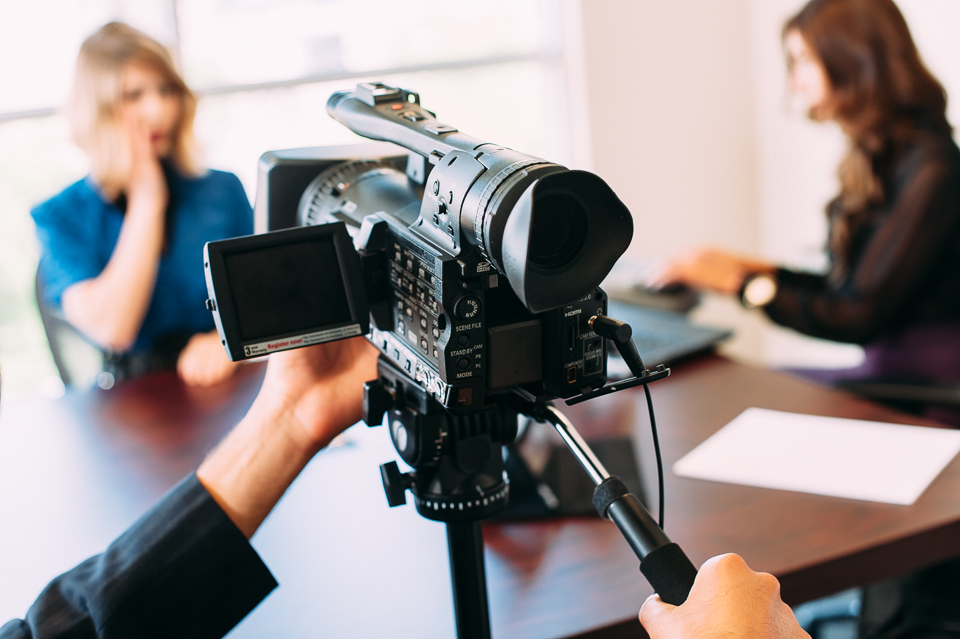How attorneys can use legal video depositions to verify inconsistent testimony
Wiki Article
The Relevance of Legal Video Clip Depositions in Modern Legal Providers: What You Need to Know
Lawful video depositions have actually ended up being important in today's legal landscape. They provide a multidimensional sight of witness statements that standard records just can not match. By capturing both non-verbal and verbal communication, these depositions boost the overall understanding of a witness's reputation. The efficiency of video depositions pivots on numerous elements, including conformity with legal standards and ideal practices. Discovering these elements reveals their true importance in modern-day legal servicesWhat Are Lawful Video Depositions?
Legal video depositions work as an important device in the litigation process. They include tape-recording witness testimonies in a video style, catching both non-verbal and spoken interaction. This approach allows lawyers to document the demeanor, expressions, and reactions of witnesses, supplying a richer context for the testimony. Generally carried out in a controlled setting, these depositions are led by attorneys who ask questions while a court press reporter documents the discussion. The resulting video can be crucial for test prep work, as it enables legal representatives to examine the reliability of witnesses and fine-tune their approaches. Furthermore, legal video clip depositions can be made use of in numerous lawful contexts, ranging from civil conflicts to criminal cases. The visual and acoustic components of video clip depositions boost the presentation of proof, making it a crucial element in the modern-day legal landscape. In general, they add significantly to the efficiency and effectiveness of lawful process.
Advantages of Video Clip Depositions Over Standard Methods
Video clip depositions supply countless benefits contrasted to conventional techniques of taking witness testaments. One significant advantage is the ability to catch both audio and visual aspects, supplying a more complete record of the witness's statements. This double layout enhances quality and permits lawyers to reference certain nuances during trial prep work. Additionally, video depositions assist in remote involvement, making it easier for witnesses that may be not available for in-person looks because of geographical constraints or health and wellness issues.Moreover, video clip depositions can accelerate the overall deposition process, lowering the time and expenses linked with travel and logistics. They also enhance accessibility, as videotaped depositions can be conveniently shared amongst legal groups and referenced any time. This comfort adds to better case management and prep work. Overall, video depositions stand for a modern, effective approach to collecting witness testimonies, straightening with the advancing requirements of the legal career.The Function of Body Language and Tone in Testimonies

In lawful video clip depositions, body language and tone play important roles in conveying a witness's integrity and trustworthiness. Nonverbal signs can give insights right into a witness's emotion, affecting how their testimony is regarded. Understanding the influence of these elements is essential for attorneys and jurors alike when assessing the integrity of a testimony.
Nonverbal Communication Insights
While spoken communication is usually emphasized in lawful testimonies, nonverbal cues such as body movement and tone play a necessary role in sharing reliability and emotion. Onlookers of depositions might note that a witness's posture, motions, and faces can greatly affect understandings of integrity. Constant eye contact may signify self-confidence, while preventing stare could suggest deceit or discomfort. The tone of voice-- its quantity, speed, and pitch-- can impart feelings of sincerity or unpredictability. Lawyers should be in harmony with these nonverbal signals, as they commonly give crucial context that complements spoken words. Recognizing these nuances can boost the performance of depositions and influence the result of lawful procedures.Emotional Tone Influence
The psychological tone communicated throughout lawful testaments substantially influences exactly how a witness is regarded. Body movement, singing inflections, and facial expressions play crucial functions fit the narrative of a testimony. A witness displaying confidence through constant eye call and a calm tone can instill a sense of integrity and interaction. Conversely, indications of anxiousness, such as fidgeting or a shaky voice, might bring about apprehension regarding their account. The subtleties of emotional expression can influence the interpretation of truths, making it necessary for lawyers to acknowledge these cues. In video depositions, the auditory and visual elements combine, stressing the relevance of psychological tone in conveying genuineness and truthfulness within the legal process.Integrity and Reliability
An important consider developing reliability and trustworthiness during testimonies hinges on the witness's body language and intonation. Onlookers frequently count on non-verbal cues-- such as eye call, pose, and gestures-- to analyze a witness's sincerity. A witness that keeps eye call and presents open body language might be viewed as more truthful and dependable than one who stays clear of eye call or shows up closed off. Additionally, intonation plays an essential duty; a constant, tranquil tone can reinforce the reliability of the testimony, while variations in pitch or quantity may raise uncertainties. Eventually, the combination of body movement and singing tone significantly affects just how a witness's statements are received and analyzed in a legal context.Ideal Practices for Carrying Out Video Depositions
Performing video depositions requires mindful planning and implementation to ensure a reliable and clear presentation of testament. Initially, it is essential to pick a peaceful, well-lit area to minimize distractions and safe optimal video high quality. The equipment should be examined beforehand, consisting of video cameras, microphones, and lights, to stay clear of technological issues during the deposition.Next, events included must assess the style and treatments ahead of time, seeing to it that everybody understands their roles. The deponent ought to be briefed on the process, consisting of just how to respond clearly and concisely.Additionally, preserving an expert demeanor throughout the session is necessary. This includes refraining from talking over one an additional and confirming that all questions are routed properly. It is important to videotape the deposition in a format that allows for easy playback and review, protecting the stability of the statement for future use.Legal Considerations and Compliance Issues
Exactly how do legal considerations and compliance problems affect the efficiency of video depositions? Lawyers should navigate a complicated landscape of policies, check here guaranteeing that video depositions follow jurisdictional rules and standards. Conformity with regulations worrying privacy, permission, and tape-recording methods is important. Getting specific permission from all parties entailed is needed to prevent legal repercussions.Additionally, the admissibility of video clip evidence in court can pivot on conformity with procedural needs. Making sure that the equipment made use of satisfies technical criteria is likewise important, as inadequate high quality can undermine the deposition's reliability.Moreover, lawyers should know any type of specific state regulations that regulate video clip depositions, as these can vary greatly. Failing to check my reference deal with these factors to consider can not only endanger the honesty of the deposition but also affect the total case approach, ultimately influencing the customer's legal end results.Just How Video Clip Depositions Influence Jury Assumption
While video depositions can work as powerful tools in lawful proceedings, their impact on court perception is substantial. The visual and auditory aspects of video clip recordings provide jurors with a much more comprehensive understanding of witness temperament, integrity, and psychological reactions. This multimedia technique can boost the jurors' ability to examine the integrity of testimony compared to standard text-based transcripts.Moreover, video clip depositions allow jurors to observe body language, tone of voice, and face expressions, every one of which can impact their interpretation of the witness's statements. The existence of a witness on display can humanize them, cultivating empathy and connection, which may persuade jurors' point of views. Conversely, a witness who appears undependable or incredibly elusive on video clip might lead to negative perceptions that influence a jury's decision. Eventually, the vibrant nature of video clip depositions plays an essential duty fit just how jurors analyze proof and reach their judgments.The Future of Video Clip Depositions in Legal Technique
As advancements in technology continue to reshape the lawful landscape, the future of video clip depositions is positioned for substantial advancement. Technologies such as fabricated knowledge, online truth, and improved video conferencing tools are anticipated to simplify the deposition procedure and enhance availability. Lawyers may utilize AI-driven analytics to analyze witness credibility and case toughness more effectively.Moreover, the assimilation of virtual reality might permit courts to experience immersive simulations of depositions, giving deeper context and understanding. In addition, the pattern toward remote depositions is most likely to continue, using better versatility for clients and attorneys alike.As remote work becomes progressively normalized, video depositions will likely come to be conventional technique, decreasing costs and time restraints related to traditional approaches. In general, these technical innovations assure to boost the performance, performance, and ease of access of video clip depositions in lawful method, ultimately transforming just how legal experts plan for test.Frequently Asked Questions
How Much Do Lawful Video Clip Depositions Usually Cost?

Can Video Depositions Be Made Use Of in Any Type Of Kind of Case?
Video clip depositions can be used in different kinds of situations, including civil, criminal, and family members legislation. Their flexibility allows attorneys to present witness testaments efficiently, adapting to the particular requirements of different lawful circumstances.What Equipment Is Required for a Video Clip Deposition?
To perform a video deposition, important equipment consists of a top quality cam, microphone, illumination, and a trustworthy recording gadget. Additionally, a computer system with editing software program might be needed for post-production and formatting the last video.The length of time Does a Common Video Deposition Last?
A normal video deposition lasts between 2 to 4 hours, relying on the complexity of the case and the variety of questions postured. Extended sessions may happen, however breaks are normally included for participant comfort.

Are Video Clip Depositions Admissible in Court?
Video clip depositions are generally acceptable in court, offered they follow lawful standards and regulations of proof. Their use improves clarity and protects witness testimony, aiding in the judicial process throughout hearings and trials. Legal video depositions have become important in today's lawful landscape. Additionally, lawful video depositions can be used in various lawful contexts, ranging from civil conflicts to criminal cases. Furthermore, video depositions promote remote participation, making it simpler for witnesses who might be not a knockout post available for in-person appearances due to geographical restraints or wellness issues.Moreover, video clip depositions can expedite the general deposition procedure, lowering the time and costs associated with travel and logistics. Making sure that the devices made use of satisfies technological requirements is additionally essential, as poor high quality can weaken the deposition's reliability.Moreover, attorneys have to be conscious of any type of details state legislations that govern video depositions, as these can vary significantly. Additionally, the trend toward remote depositions is likely to linger, providing higher versatility for clients and attorneys alike.As remote work comes to be significantly normalized, video depositions will likely become basic technique, minimizing costs and time constraints associated with standard approaches.Report this wiki page